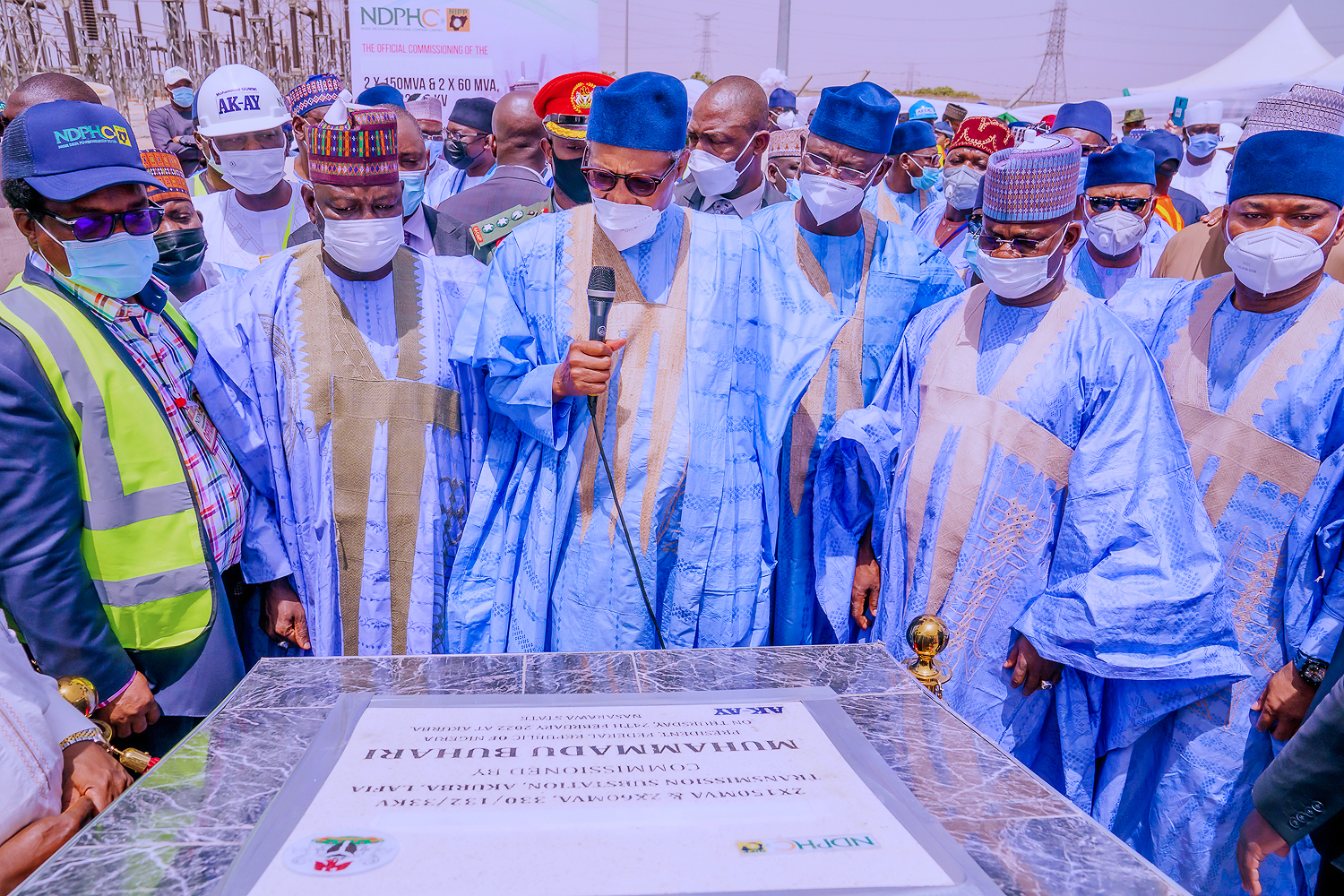Business
‘Striking Workers Crash Power Generation To 43MW’

The Federal Government, through the Ministry of Power, has said the recent one-day strike by workers of the Transmission Company of Nigeria (TCN) crashed Nigeria’s power generation from a peak of 4,829.5 megawatts to as low as 43MW.
Staff of the transmission company, under the aegis of the National Union of Electricity Employees, shut down the country’s power grid last Wednesday, throwing businesses and other power consumers into darkness.
They went on strike in protest against a compulsory promotion interview for principal managers, unpaid entitlement, among other issues, and crippled the country’s power supply for several hours before the intervention of the Federal Government.
Latest figures obtained in Abuja on Sunday on the country’s power grid performance indicated that peak power generation on Tuesday before the workers’ strike was 4,829.5MW.
But as the workers turned off the power stations one after the other during their industrial action on Wednesday, as seen in viral videos that were circulated online, electricity generation on the grid eventually collapsed to 43MW.
It was further observed that as the grid restoration process commenced, power generation moved up to 215MW, which was the off-peak generation figure on Thursday, while peak generation on same day was put at 4,476.2MW.
Off-peak power generation on the grid was put at 3,421.7MW on Saturday, while peak generation on same day was 4,636.4MW. However, this dipped to 4,333.7MW as at 6am on Sunday.
The Federal Government had confirmed on Wednesday that the action by the electricity workers resulted in a collapse of the country’s grid.
“Following the industrial dispute declared by the two in-house unions at the Transmission Company of Nigeria, the national electric power grid has been shut down by union functionaries, even as unfettered effort was being made to resolve the issues upon which the action was called,” the government said in a statement from its power transmission company.
It added, “The incident occurred at 15:01hours today (Wednesday) after several 330kV transmission lines and 33kV feeder-lines across the power system network had been switched off by the union members, resulting in generation-load imbalance and multiple voltage escalations at critical stations and substations.
“Regrettably, this is coming weeks after we had emerged from a hectic grid management regime, precipitated by paucity of generation, which we grappled with for a couple of months”.
Meanwhile, power consumer groups lambasted the Federal Government, TCN, and NUEE for plunging the entire country into darkness for several hours due to the internal dispute at the transmission company.
In separate interviews, the groups stated that the development had further showed the weakness of the present government,
The National Secretary, Network of Electricity Consumers Advocacy of Nigeria, Uket Obonga, told newsmen that the government displayed its weakness, stressing that the action of the union members was appalling.
He said, “It is unfortunate that such could happen in the power sector. Recall that in 1986, a group of the defunct NEPA officials attempted to shut down electricity supply nationwide and the government at the time got them arrested, which was the proper thing to do because it is treasonable.
“How would you throw a whole nation into darkness? What are their demands? Are there no alternatives? Don’t we have the court of arbitration?
“It is unacceptable and this further exposes the weakness of this present government.
“If we were a nation with adequate data, do you think you can quantify the damage they have done to the economy and private businesses? Now, I want you to know that I am not protecting government because it is its incompetence that has got us into this.”
On his part, the President, Nigeria Consumer Protection Network, Kunle Olubiyo, stated that it was unfortunate that the government ignored all entreaties by labour after the union sent about 17 correspondences to government on the matter.
Olubiyo, who served as member of the National Technical Investigative Panel on Power System Collapses/System Stability And Reliability (June 2013), stated that the Federal Government was becoming notorious in flouting contracts.
“Successive Nigerian government should not be seen to contribute to a despicable culture of impunity, lack of integrity on governance and zero regards for the sanctity of contracts.
“We cannot continue in this negative direction of reneging on simple gentleman’s agreements in all spheres of governance. The losses incurred by electricity consumers whether residential, bulk users and industrial clusters are unquantifiable.
“The parties to the present crises, government and the organised labour, should quickly get back to peaceful negotiable terms.”
Business
Abolish Multiple Taxation In Rivers, Group Urges Govt
Business
MDAs, Presidency Spend N1.9bn On Trips, Trainings In France
Business
NCDMB, ARPHL, Others Partner On Refinery Project
-
News3 days ago
Reps urge CBN to suspend increase in ATM withdrawal charges
-
Features3 days ago
Vocational Education And Nigeria’s Economy
-
Rivers3 days ago
Rivers Partner TAF To Promote Disability Inclusion
-
Business3 days ago
Gaming Regulator Pledges Deepened Data-Gathering For Security
-
Opinion3 days ago
Drunken Captains Of A Sinking Ship
-
News3 days ago
Fubara Recommits To Wellbeing Of Rivers People
-
Business3 days ago
Firm Advocates For Renewable Energy Adoption
-

 Entertainment3 days ago
Entertainment3 days agoInternational Women’s Rights Day: Alliance Française Port Harcourt Celebrates The ‘Badass’ Heroines

